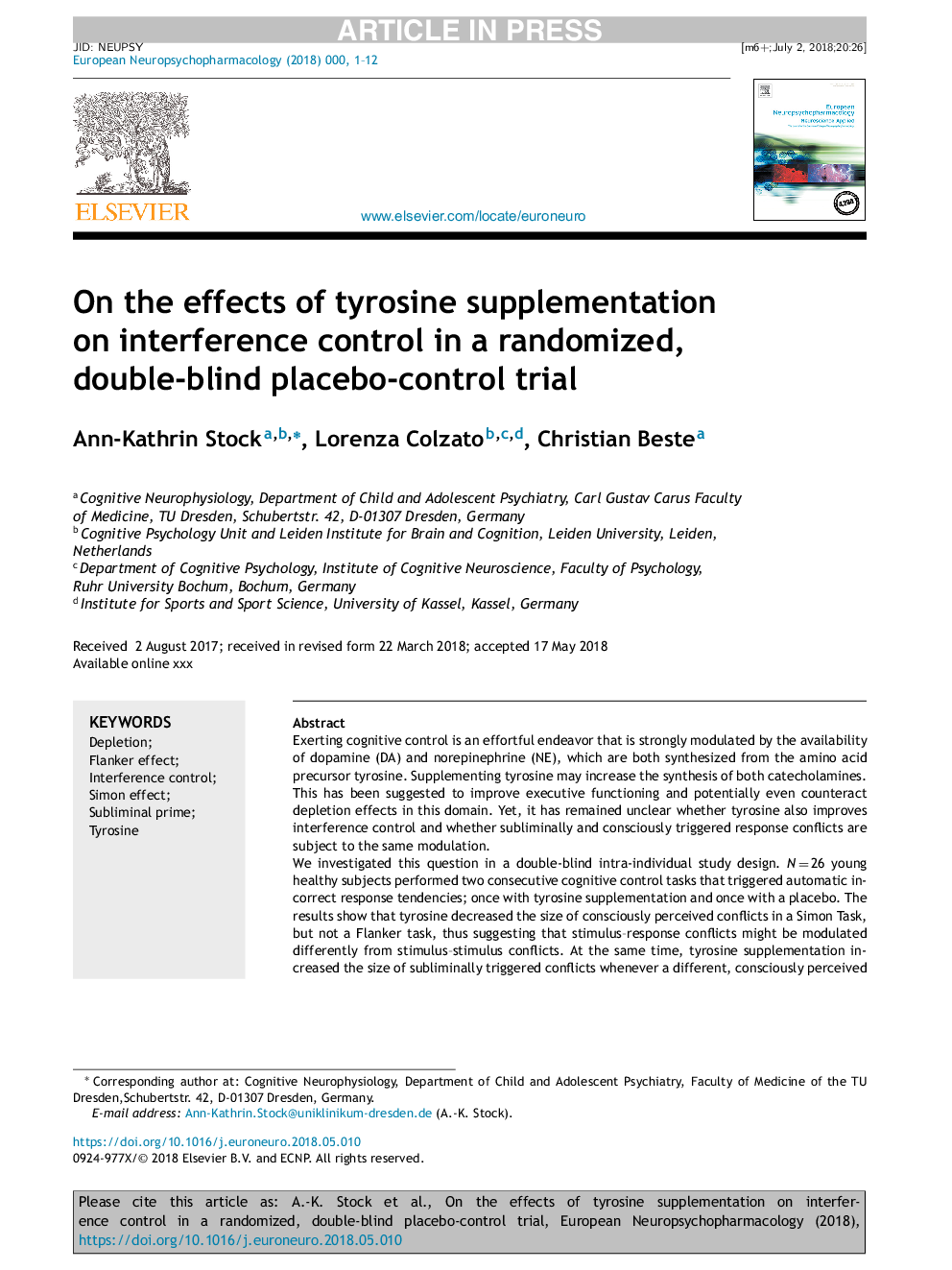| Article ID | Journal | Published Year | Pages | File Type |
|---|---|---|---|---|
| 8941676 | European Neuropsychopharmacology | 2018 | 12 Pages |
Abstract
We investigated this question in a double-blind intra-individual study design. Nâ¯=â¯26 young healthy subjects performed two consecutive cognitive control tasks that triggered automatic incorrect response tendencies; once with tyrosine supplementation and once with a placebo. The results show that tyrosine decreased the size of consciously perceived conflicts in a Simon Task, but not a Flanker task, thus suggesting that stimulus-response conflicts might be modulated differently from stimulus-stimulus conflicts. At the same time, tyrosine supplementation increased the size of subliminally triggered conflicts whenever a different, consciously perceived conflict was also present. This suggests that control-related DA and NE release may increase visuo-motor priming, especially when no conflict-specific top-down control may be triggered to counteract subliminal priming effects. Also, these subliminal conflicts might be aggravated by concurrent control investments in other kinds of conflict. Taken together, our data suggest that beneficial effects of tyrosine supplementation do not require depletion effects, but may be limited to situations where we consciously perceive a conflict and the associated need for conflict-specific control.
Related Topics
Life Sciences
Neuroscience
Biological Psychiatry
Authors
Ann-Kathrin Stock, Lorenza Colzato, Christian Beste,
